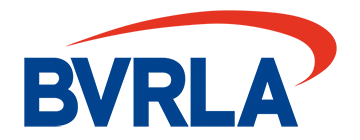Technologies Found In Modern Diesel Cars & Vans
Diesel used to be an undesirable way to power vehicles. A cheap byproduct of the fractional distillation process which turned crude oil into petrol (and other products), it was cheap to buy, but the vehicles which could run on it were typically slow, very smoky and very loud. As years went by, the sophistication of diesel fuel and diesel engines has come on in leaps and bounds and now it can produce power, speed as well as being incredibly efficient.
The issue of tailpipe emissions however is always going to be a bane of diesel. Technology has, once again made diesel vehicles clean, thanks to the introduction and advancements in the field of exhaust innovations which essentially ‘clean’ the exhaust emissions as they’re created.
These technologies however, do require a little extra knowledge in order to operate efficiently, to keep them running properly and to avoid problems in the future. For the most part, these are easy to understand.
DPF – Diesel Particulate Filters
Diesel particulate filters are a fact of life in modern diesels. These filters catch particles of soot from diesel exhausts to prevent them from getting into the air. These filters are self cleaning, but they require a high temperature in order to operate. High exhaust temperatures burn off the soot particles leaving only a small ash residue. This process is often referred to as ‘regeneration’.
To achieve a temperature high enough for regeneration to occur and in turn to burn off the particles, the vehicle needs to be driven for long enough and at high enough RPM for heat to build up in the exhaust system. For most vehicles, being driven at 40mph or higher for at least 10 minutes is enough and this process happens automatically.
Too many short trips without the required heat being able to build up, will result in the DPF filter starting to clog up with soot particles. Many vehicles come equipped with a number of systems to try and mitigate this. Look out for a warning light on the dash in the first instance and if you see it, consider taking the vehicle on a drive long enough for the soot to be cleared. For example, a motorway run, in a slightly lower gear than you would normally in order to get the revs up. The light should then go off on its own.
If the light doesn’t go out and if it’s allowed to continue being lit, the filter is at risk of clogging completely, which may trigger a ‘limp home mode’ depending on the vehicle, but will almost certainly result in a trip to a service centre. It’s possible in some circumstances to force regeneration and clean a blocked DPF, but not always. Replacing a clogged Diesel Particulate Filter is never cheap and can come to over £1,000. Never drive a vehicle for extended periods with the DPF light illuminated.
Vehicle warranties don’t cover clogged DPFs, nor do maintenance agreements, as it’s typically regarded as ’caused by the manner of driving’ due to how easily preventable it is. For more specific information, always check the manual for the vehicle you’re driving.
DEF – Diesel Emissions Fluid (Commonly Referred To As Adblue)
Diesel emissions fluid is a feature of all diesel vehicles manufactured over the last few years. Most people will refer to it as ‘Adblue’ though. Mostly because it’s less of a mouthful to say! In actual fact, Adblue is a brand name and Diesel Emissions Fluid is the generic term.
DEF is a clear, mostly harmless liquid that has a tank and filler of its own. The filler for diesel and adblue are usually next to one another, but it’s important to NEVER mix diesel and DEF. Diesel is a fuel and powers the engine, DEF is an additive used in the exhaust system. They never mix and should never mix. Even a drop of either in the wrong tank will result in some VERY expensive repairs if the engine is switched on without being professionally cleaned. It goes without saying, that these won’t be covered in any warranty or service agreement.
DEF is sprayed as a fine mist into the exhaust system when the diesel vehicle is running, it binds with the harmful nitrogen oxide gas in the exhaust emissions and changes nearly all of it into harmless nitrogen and water vapour. A process known as selective catalytic reduction (SCR).
Vehicle manufacturers are under considerable pressure to ensure their vehicles emit as few harmful exhaust pollutants as possible, so although engines will happily run when there’s no DEF to control the emissions, vehicles are programmed not to run without it. With this being the case, it’s important to never let adblue run out and ideally never let it get anywhere near running out. Diesel vehicles with adblue will typically give plenty of warning and a long countdown. Don’t let this give you a false sense of security, adblue should ideally be topped up as soon as possible after the light comes on. Some vehicles will, if allowed to get too low on DEF, won’t register a last minute top up and will continue the countdown. In almost all cases, if the countdown gets to zero, the vehicle will refuse to start. This will necessitate a trip to the manufacturer to reset the system. This is never cheap and as you’d expect, isn’t covered by warranty or service agreement.
Click for more detailed information about Diesel Emissions Fluid / Adblue.





